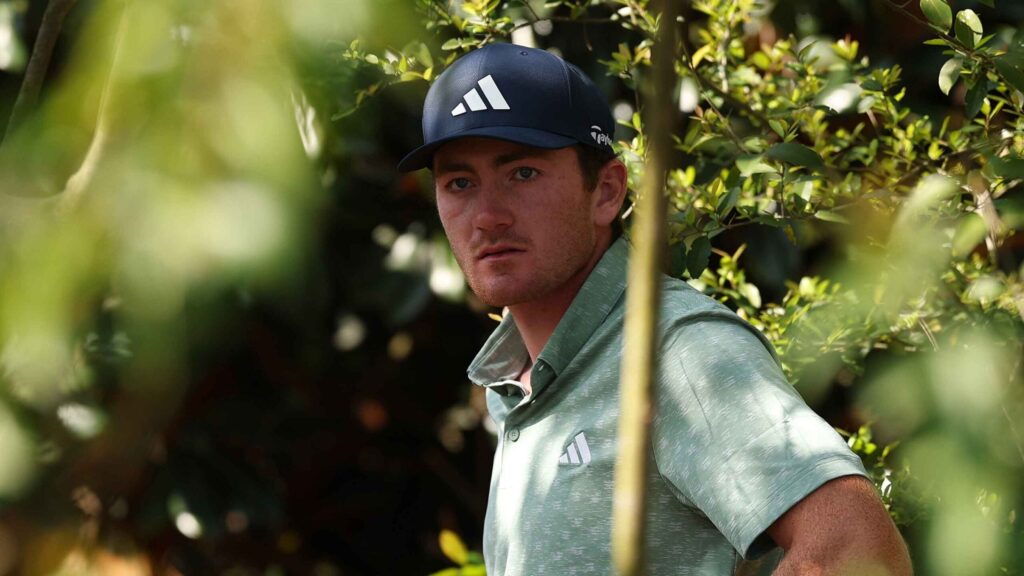Nick Dunlap had a rough start to the Masters tournament, ending his first round with a score of 90, the highest in a Masters tournament since 2015. Despite his struggles, Dunlap is a young and talented player who has shown success in the past, winning both the U.S. Junior Amateur and the U.S. Amateur. He even became the first amateur to win on the PGA Tour since Phil Mickelson in 1991. However, this year has been challenging for Dunlap, with less success on the course compared to previous seasons.
Dunlap’s struggles in the opening round of the Masters began with a tugged tee ball on the first hole, setting the tone for the rest of his round. He continued to struggle, recording multiple bogeys and other mistakes throughout the course. Despite his poor performance, Dunlap managed to avoid any three-putts during his round. His difficulties continued in Amen Corner, where he found water on three consecutive holes, leading to even more scorecard trouble.
After completing his round, Dunlap declined to speak with reporters and disappeared behind the clubhouse. His caddie, Hunter Hamrick, also declined to speak, showing the emotional toll of the challenging round. However, Dunlap’s playing partner, Bob MacIntyre, offered some insight into Dunlap’s performance, noting that despite his struggles, Dunlap maintained a solid attitude and did not let his performance affect his playing partners. MacIntyre expressed confidence that Dunlap would bounce back from this difficult round.
Despite his disappointing start, Dunlap has a Friday starting time and the opportunity to redeem himself in the following rounds of the Masters tournament. As a young and talented player, Dunlap has shown resilience and skill in the past, making it likely that he will come back stronger in the coming days. His previous successes on the course, including wins in amateur and professional events, showcase his potential to overcome setbacks and perform at a high level in future tournaments.
In conclusion, Nick Dunlap’s challenging first round at the Masters tournament may have been disheartening, but it is not indicative of his overall talent and potential as a golfer. With a history of success in both amateur and professional events, Dunlap has the skills and resilience to overcome setbacks and perform well in future tournaments. Despite the difficulties he faced in the opening round, Dunlap’s positive attitude and determination give him the ability to bounce back and showcase his true abilities on the course. As he moves forward in the tournament, Dunlap has the opportunity to prove his capabilities and continue to strive for success in the world of professional golf.


